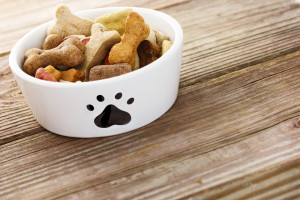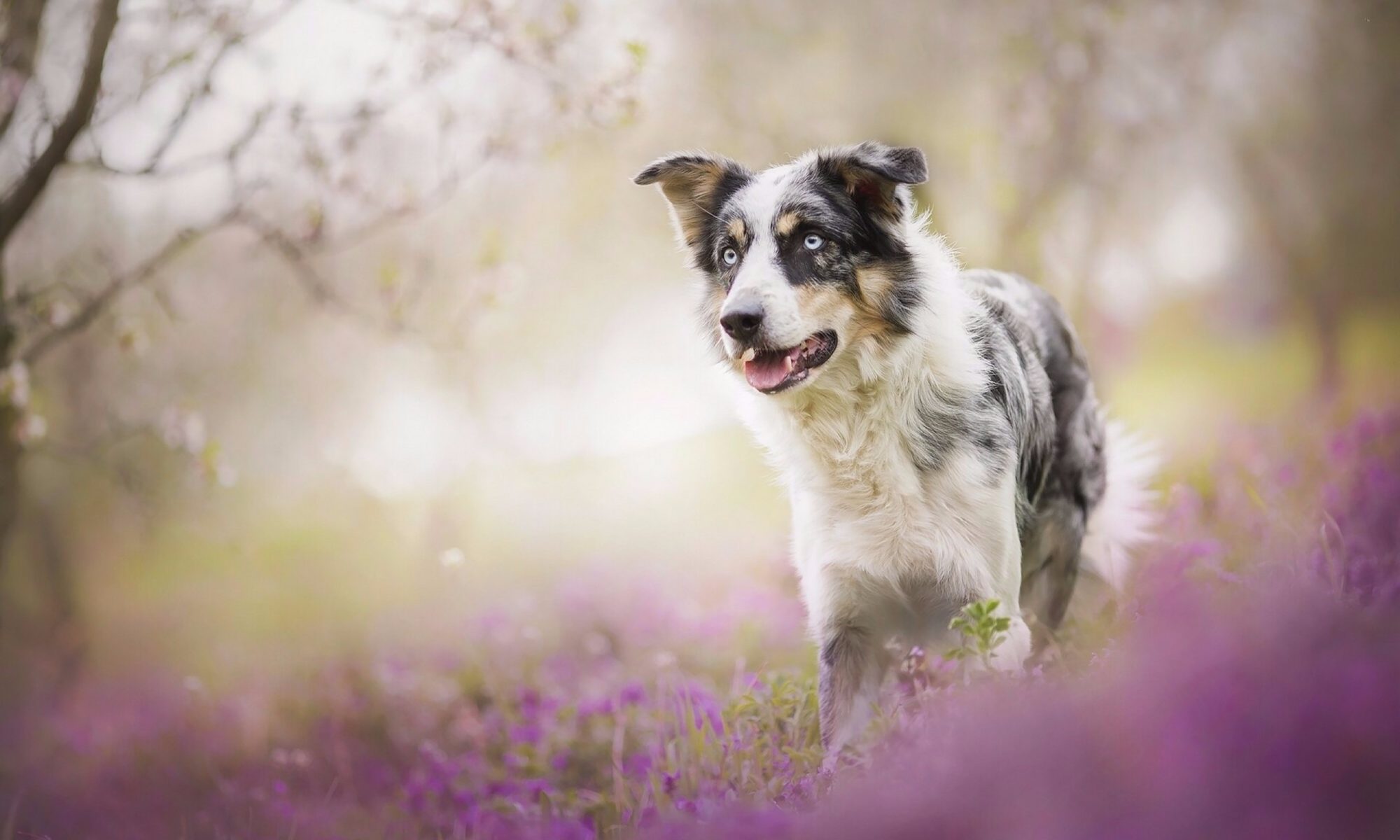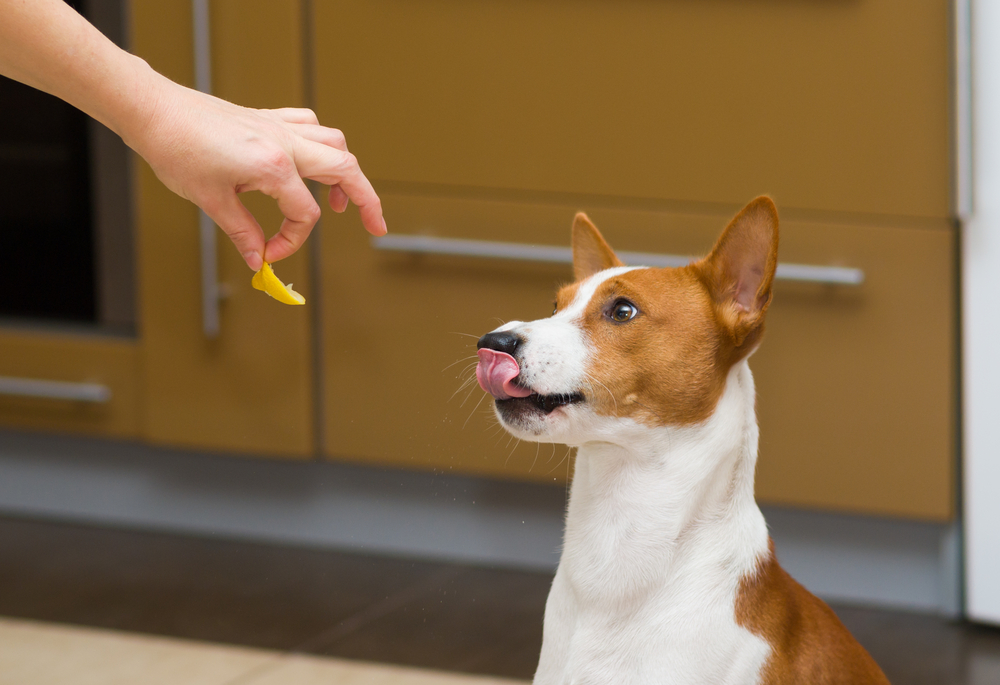I bet your dog loves to “help” take care of food in the kitchen?
When our dogs beg it’s too easy for us to give in. We want to please our dogs, and we can’t resist those puppy dog eyes.
The smell of fresh breads, meats, and fatty side dishes are extremely popular with puppies, and they’ll go to great lengths to convince you for a bite of whatever’s being served.
But when should we, and when should we not feed our dogs human food?
Some human foods can be very unhealthy for our dogs. They have a different digestive system to ours, closer to the digestive system of a cat as a true carnivore, and even with fatty meats we can risk pancreatitis, weight gain, and other heath issues.
Feeding our dogs table scraps can also encourage bad behavior, which not only frustrates us, but disgusts our visitors.
Let’s spend some time considering whether dogs can eat human food, as this can lead to your dog having a healthier lifestyle.
The risks of feeding your dog table scraps
Up until the 1950s when commercial dog foods became popular, most dogs were fed table scraps. Many would argue dogs were healthier back then, but canine health science was in it’s infancy as well – so we really didn’t know much.
In contrast, I think we all know too well how unhealthy some dog food can be? Read the chapters (listed to the right) if you want to know what I think.
So how should we feed our dogs?
Humans are lucky that gastronomy is a part of our culture: the variety and excitement that comes with preparing interesting dishes is a daily joy that simply cannot be experienced in the same way by other animals.

Since dogs are carnivores (well, they’re from the Order Carnivora), store-bought dog foods must provided minimum nutrients such as proteins and fats (hopefully from meats) which satisfy their cravings as well as keep their digestive and metabolic systems healthy.
You’ve heard of “complete and balanced“, which although having debatable merit in terms of “standards”, does provide some assurances of a balanced diet.
If we feed our dogs human foods do we really know if we’re offering our dogs all required nutrition?
Do you know?
The dangers of carbohydrates and sugars in human foods
When we let our dogs eat sweet and carbohydrate-heavy treats, they might be happy in the short-term, but their digestive system will often reject these foods. Some foods put strain on our dogs organs, which is likely the main culprit behind renal failure and various cancers.
Some sugary or high-carb foods can lead to messy, uncontrollable bowel movements or vomiting, cause your dog to get fat, or lead to diabetes.
High-quality dog foods are specially formulated to meet the needs of your pup in smaller doses, especially those that have earned certifications from international quality control organizations.
Related: Pet Food Ratings teaches you how to really tell a high-end dog food – don’t just believe the packaging.
Human diets, compared to well formulated dog foods, are typically varied and balanced enough that our occasional indulgence “treats” do not leave us lacking in key nutrients that we need to survive and thrive.
Many small and toy breeds are particularly affected by human foods, as a whole fatty sausage with onion might be fine for us, but to them it’s a potentially harmful feast.
Because our diets are varied and our dogs diets are often limited, and because our dogs develop diet-related health conditions at a faster rate than us, dogs are more at risk when not fed a balanced diet.
Nutrition is Key: Human food may not match your dog’s needs
Dogs, though certainly intelligent, will not make the connection that sickness can be linked to eating human food (or even unhealthy dog food).
Therefore it is impossible for them to “learn a lesson” and avoid those foods in the future.
The cravings will continue to arise, and your dog’s behavior may become overexcited and uncontrollable in the process.
Dogs can become addicted to sugary and unhealthy foods just like we can.
Most owners know dogs should not be fed products with chocolate, as it can lead to severe allergic reactions and even death. Lists of foods said to be “bad for dogs” regularly circulate the Internet, deterring people from feeding their dogs avocado or garlic which are actually beneficial for dogs in moderation.
Did you know many dog owners fail to realise the skin condition or persistent scratching of their dog may be related to allergies?
Vets do too.
Even when taken to the vets for diagnosis it is more likely a vet will prescribe treatment (or an expensive prescription dog food) rather than consider the underlying cause?
Testing a dog for allergies and food-intolerances is also expensive, which puts off most dog owners despite being essential information for fixing the problem.
Note: If your dog suffers symptoms of allergies, then first step is to consider what you’ve been feeding them – such a simple and free starting point.
Sometimes human foods can trigger immediate reactions in a dog, or sometimes they’ll cause harm over a longer term, so by giving him that “special treat” you’re potentially asking for problems.
How formulated dog foods can be safer
Whether you feed a commercial dog food, raw diet, or some variation of homemade diet (i.e. from human foods), it is worth considering the benefits of dog foods over alternatives.
Dog foods are designed to provide the proper balance for your dog, covering all basis for their nutritional needs (as research currently dictates).
When it comes to commercial dog foods, this would be the AAFCO standards and nutrient requirements.
Because of these nutrient requirements, commercial dog foods should not carry the risks involved in feeding your dog human foods or table scraps.
I should probably use quotes around “should not”, but the take-home point here is we need to feed our dogs a safe and balanced diet.
A quick summary
Whatever you feed your dog, make sure you offer them the nutrition – proteins, fats, vitamins, and minerals – they need to keep their bodies healthy and strong.
If you don’t feel confident in doing this, then either research, ask others, join social media groups with knowledgeable people, or feed a decent dog food. Mostly, use common sense.
Be wary of human foods which aren’t appropriate for your dog as a “carnivore”, and avoid foods in excess (such as fatty meats).
Always consider your dog as a carnivore, or fundamentally a carnivore even if some other foods are ok in moderation.
A well-fed dog is a happy dog, and your dog will thank you for giving him foods which satisfy his taste buds and his belly both.
What do you feed your dog?
Commercial food, raw food, human food?

